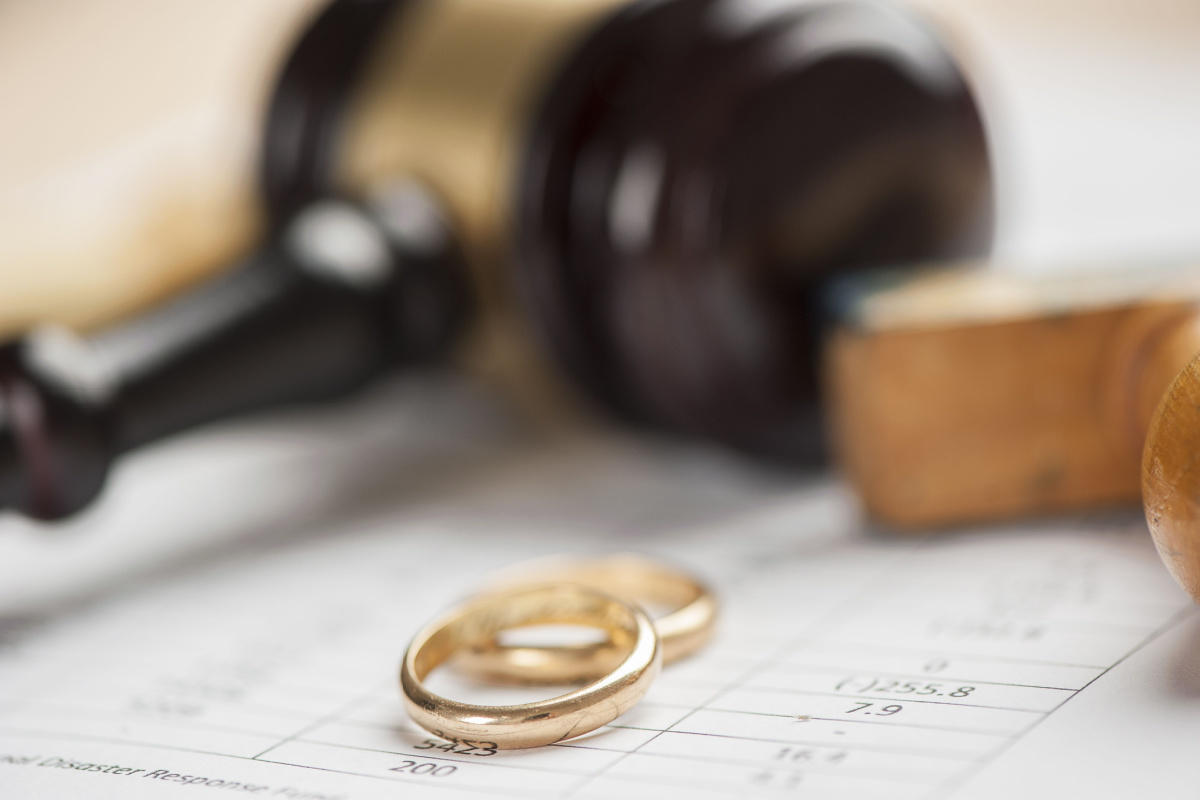





Reality star couple Kim Zolciak and Kroy Biermann should have been financially comfortable considering Biermann’s NFL career and the pair’s earnings from the eight seasons of their show on the Bravo network, but it was revealed earlier this year that the couple has a $1.4 million tax lien on their Georgia mansion – likely a catalyst for their impending divorce. The tabloids are speculating if either or both will end up filing for bankruptcy.
Understanding the basics of divorce and bankruptcy is essential for anyone dealing with these complex issues. Divorce refers to the legal process that ends a marriage, dictating the division of assets, custody of children, and financial responsibilities between the separating parties. On the other hand, bankruptcy is a legal proceeding that helps individuals or businesses struggling with overwhelming debt. It allows for the restructuring or elimination of debts under the protection of the federal bankruptcy court.
Deciding whether to file for bankruptcy before or after divorce is a complex matter that largely depends on individual circumstances. Filing before divorce can simplify the process by addressing shared debts and potentially allowing both parties to start with a clean financial slate. It might also be cheaper, as both spouses can file together, reducing court and attorney fees.
On the other hand, filing for bankruptcy after divorce can be beneficial if one spouse earns significantly more than the other. After divorce, the lower-income spouse may qualify for Chapter 7 bankruptcy, which can discharge certain debts completely. However, if filed before the divorce, their combined income might be too high to qualify. Additionally, the timing also depends on the type of bankruptcy chosen. For example, Chapter 13 bankruptcy takes longer and can complicate the divorce process.
Understanding responsibility for joint debt during a divorce is a complex task. Generally, joint debt includes any credit accounts that both spouses have agreed to be liable for. These could include joint credit cards, loans, and mortgages. During a divorce, the court typically divides the debt between both parties, but it’s not always a 50/50 split. The judge considers factors like each spouse’s ability to pay, who incurred the debt, and for what purpose.
However, it’s important to remember that an agreement between spouses or a court order in a divorce proceeding doesn’t change the agreement with the creditor. If both names are in debt, and one spouse fails to pay, the other can still be held responsible. This potential liability may impact an individual’s decision about when and how to file for bankruptcy.
The process of divorce can significantly impact a Chapter 7 bankruptcy filing. In a Chapter 7 bankruptcy, a trustee sells off non-exempt assets to repay creditors, and the remaining unsecured debts are typically discharged. However, the divorce proceedings can affect who is responsible for these debts and what assets are available for liquidation.
If the divorce happens before the bankruptcy filing, the division of assets and debts in the divorce agreement will influence the bankruptcy process. For example, if one spouse takes on more marital debt in the divorce, it may find it harder to pass the Chapter 7 means test, which examines if a debtor’s income is low enough to qualify. On the other hand, filing for Chapter 7 bankruptcy before divorce can simplify the process. It may help to eliminate joint debts and could prevent the need to divide certain marital property.
Chapter 13 bankruptcy allows a debtor to reorganize their debts into a manageable repayment plan while keeping their assets. This type of bankruptcy can last for 3 to 5 years. The timing and process of a divorce can have a significant impact on a Chapter 13 filing.
If a couple files for Chapter 13 bankruptcy together, then later decides to divorce, it may complicate their bankruptcy plan. The couple may have to convert the bankruptcy to two separate Chapter 13 cases or even into two Chapter 7 cases.
If an individual files for Chapter 13 after a divorce, it could be more straightforward. They would only need to include their own income, expenses, and debt. However, Chapter 13 could be challenging if with ongoing divorce-related obligations like alimony or child support since these cannot be discharged in bankruptcy.
Alimony and child support hold a special status in bankruptcy proceedings, regardless of whether one is filing under Chapter 7 or Chapter 13. These obligations, often termed “domestic support obligations,” cannot be discharged or wiped out in bankruptcy. This means that even after filing for bankruptcy, individuals are still required to make these payments.
In a Chapter 7 bankruptcy, alimony and child support debts take priority over almost all other debts. The debtor’s non-exempt assets are liquidated, or sold, to pay back these obligations before other creditors see a dime.
In a Chapter 13 bankruptcy, any plan proposed must make sure that all outstanding alimony and child support debts are paid in full over the life of the plan. It’s important to note that any missed payments during the bankruptcy can lead to case dismissal or conversion to Chapter 7.

Dealing with the financial challenges of divorce and bankruptcy can be a daunting task. Divorce usually involves splitting one household into two, which often results in increased expenses and decreased income. It’s not uncommon for individuals to struggle with the financial aftermath of a divorce.
Adding bankruptcy into the mix can further complicate the situation. Bankruptcy can offer a fresh start by eliminating or restructuring debts, but it also has long-term effects on one’s credit score, making it harder to secure loans or credit in the future.
When bankruptcy and divorce happen simultaneously or close together, it’s essential to understand their impact on each other. For instance, timing is a key factor – whether to file for bankruptcy before or after divorce can significantly affect the process and outcomes. By fully understanding these financial challenges, individuals can better handle the tough situation.
Navigating the intricacies of bankruptcy, especially in tandem with divorce, requires a comprehensive resource. Visiting Debt Advisors offers a wealth of knowledge. For more localized assistance, their Kenosha office can provide tailored guidance. considering bankruptcy knowledge becomes essential. Post-bankruptcy, it’s crucial to rebuild; the guide on post-bankruptcy recovery strategies can set you on the right path.
If you are dealing with bankruptcy, contact us or call us at 866-696-6432 today for a free consultation.

Learn about bankruptcy protections, types of bankruptcy, how to get started, what to expect, and who to trust. Filing bankruptcy is the ONLY way to completely eliminate debt. If bankruptcy is right for you, it offers powerful protections that cannot be achieved through alternative solutions such as hardship relief, loans, or debt settlement.